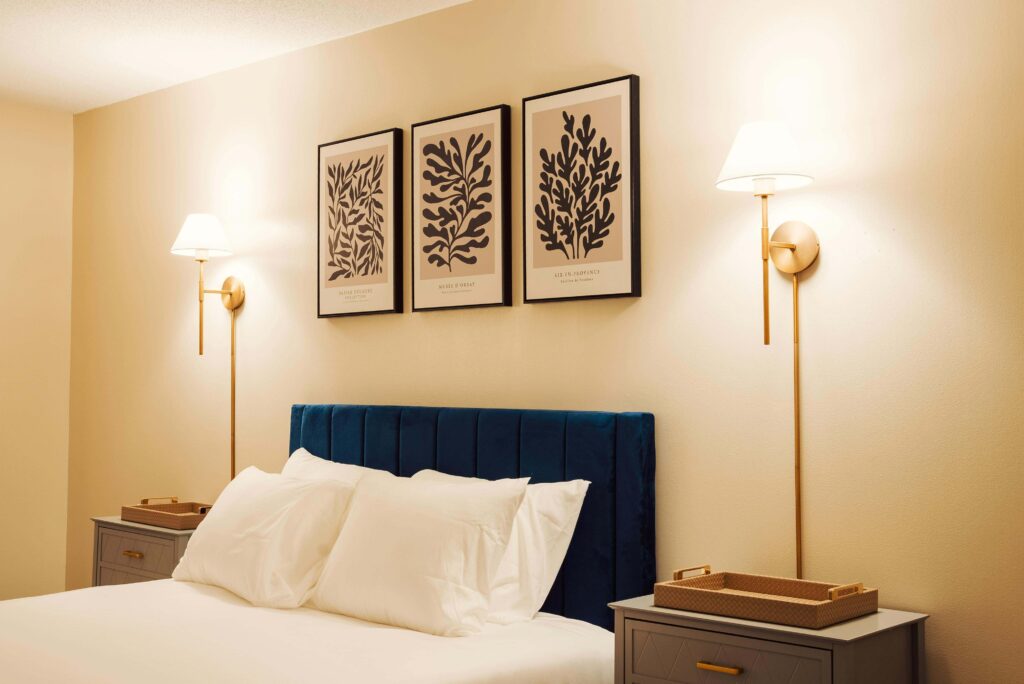How to Develop A Compelling Hotel USP (Unique Selling Proposition)
A strong and unique selling proposition (USP) can make a huge difference in the hospitality industry. It lets you and your target audience know what makes your business special, setting you apart from competitors and helping make a meaningful impression.
In this guide, we’ll discuss what a USP is, giving some industry-specific examples. We’ll also walk you through developing and implementing your own hotel USP so you can start reaping benefits for your business.
What is a USP?
USPs exist across all sorts of businesses. For example, think about a company that sells health and beauty products. Through market research, they realize that there is a gap in the market for an eco-friendly company. By making a point about their sustainability, they can successfully distinguish themselves from other companies and gain market share.
In this instance, eco-friendly practices would be a USP. It is a distinctive feature of the business that makes it stand out from its competitors and appeals to specific needs. A well-defined USP can be a huge part of a business’s success, including those in the hotel industry. It can also form the core of a new sales plan.
Unique selling proposition examples for hotels
Getting your hotel USP right can give you a big competitive advantage. A hotel with a well-crafted USP distinguishes itself from competitors and sticks in customer’s minds. They can also target specific audiences, potentially meaning they can charge premium rates. A good USP can form the core of your hotel’s operations and marketing strategy.
A few unique selling proposition examples for hotels include:
- Focusing on families by providing entertainment and shuttles to local attractions
- Delivering high-end luxury by investing in unique facilities and exceptional service
- Appealing to eco-tourists by highlighting your sustainable practices
These each focus on what makes the business unique and serve a particular need.
Crafting your hotel USP
So where do you start? Developing a USP for your hotel can be broken down into four main steps.
1. Identify your target audience
A good USP starts with knowing who you’re selling to. Understanding your target market will make your USP more coherent and make it easier to meet customer expectations.
One way to get started with this is creating a marketing profile. This involves creating a fictional version of your target customer. You might write down elements such as their name, age, travel goals, budget, and pain points when it comes to booking.
Give as much detail as you can. If you are an established hotelier, your current customer base is a great place to start. If people are already visiting your location, there’s no need to start from scratch.
Once you have a clear idea who your potential guests are, start asking more questions. Consider why they would choose your hotel over the competition. Think about what you’ve done to meet their needs and what else you could do to improve your offering. This will give you a deeper understanding of what you are doing well and what you could be doing better.
2. Analyze your competition
Your hotel USP should set you apart from your competition. By researching your current and future competitors, you can identify gaps in the market. This avoids unnecessary competition and means you can offer something distinct and unique.
A few questions you might want to consider in your research include:
- What are your local competitors failing to offer?
- What are other hotels doing to attract your target audience?
- What do your competitors have that will make potential guests choose them over you?
- What could you be doing to make yourself stand out?
- Are there any market trends you could take advantage of?
3. Highlight your existing strengths
Your hotel will have unique traits that can help you stand out from the competition. Maybe you have a great central location or your building has historical significance. These are a good starting point for figuring out what sets you apart from the competition. Even something small like a cozy lounge can serve as a big draw for prospective customers.
Consider things through the eyes of your customers and what they value. Be sure to look at things from a range of perspectives as well. For example, a more remote hotel might be quiet and peaceful compared to a busy city.
4. Refine your hotel USP
Once you know your strengths and who you are trying to sell to, start to refine your ideas into a few clear benefits. Think of the specific benefits your guests are getting when they book with you. For instance, if you run shuttle buses to local attractions, the benefit could be “hassle-free connections around the area”.
It can be helpful to refine your hotel USP into a single statement. Think of this like a tagline – a simple sentence that gets across what makes your hotel special. A family resort, for instance, might define their hotel USP as “a place to make precious memories”. This will describe a variety of benefits such as links to family attractions and on-site entertainment.
Implementing your hotel USP
Your USP is a powerful tool for marketing. Branding and marketing should be crafted with your unique offering for guests in mind. Consider how you will get your USP across in email, brochures, and other marketing materials. A new USP can be a great opportunity to rebrand as well
It should also form a key part of your online presence. If you run online advertisements or use content marketing, try and target these to your ideal customers. This can form the first part of your lead generation marketing funnel.
Once you’ve got your guests to your hotel, you need to deliver on your proposition. Make sure your customer service staff are trained on your hotel USP and that you are investing in key facilities. Share positive testimonials and continuously ask for customer feedback so you can make your offering even better.
Make your hotel stand out
A hotel USP acts as the backbone of your business. A clear vision of what makes you special can inform all parts of your operations, from marketing to customer service. Successfully distinguishing yourself from your competitors allows you to create a memorable impression. It also means you can attract customers who aren’t having their needs met.
If you are a tourist accommodation or hotel owner and you don’t use Chekin yet. Here is the solution to save 87% of your time and earn more with every booking
Free trial for 14 days. No credit card required!






